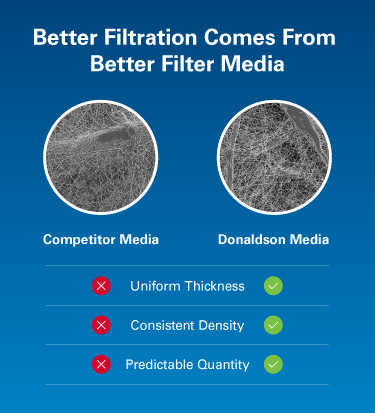
Serbia is building on its geographic position and preferred access to global markets to attract investors from the automotive sector looking for cost-effective, high-quality manufacturing bases.
The East European nation has positioned itself as a manufacturing hub for duty-free exports to a market of a billion people. The market includes the European Union, the United States of America, the Russian Federation, Kazakhstan, Turkey, South East Europe, the European Free Trade Agreement members, and Belarus. Serbia also has a vibrant local market – with a population of 7.5 million people, the country is the second-largest market in South East Europe.
Over the past 12 years, Serbia has attracted 1.6-billion Euro in foreign direct investment (FDI) into the sector, according to the Serbia Investment and Export Promotion Agency (SIEPA). The country is highly rated by international agencies. The Economist Intelligence Unit, in its forecast for Eastern Europe from 2009 to 2013, predicts that Serbia will be leading the 16 countries in the region in terms of business reforms by a wide margin. PricewaterhouseCoopers ranks Serbia as being the third-most attractive in terms of manufacturing, and seventh for services as a FDI destination among emerging economies. Ernst & Young recorded nearly 150 inward investments in Serbia in 2007, 2008 and 2009 – the second-best performance in the south-east Europe region.
Automotive companies like the Tier 1 Streit Group have been quick to take advantage of Serbia’s investor-friendly climate. The French company, which has eight production facilities worldwide has invested 6-million Euro in Serbia – with more planned – including a robotic manufacturing unit. Streit’s client list includes PSA Peugeot, Citroen, Daimler, Valeo and Honeywell. Similarly, TPV Sumadija, a Slovenian company which makes parts and components for Renault, BMW, Bosch, Cimos and other leading car manufacturers, has invested 4-m Euro in Serbia since 2005. The company aims to develop a full passenger seat production facility..
The first OEM in the country is Fiat Automobili Srbija (FAS), which was established in 2008 as a joint venture agreement between Fiat Group Automobiles (67%) and the Republic of Serbia (33%). The Fiat Group invested 940-m Euro in Serbia. The Serbian government ceded the ownership of the land and the property of its Zastava plant in Kragujevac, as well as a building in Belgrade to FAS. By 2010, FAS was employing 1,000 workers, and had produced 16,000 Punto Classic units.. In 2011, FAS invested in new plant and machinery to produce two new car models, with a capacity of 200,000 units a year. Fiat 500 L cars have since started rolling off the production line.
Automotive Industries (AI) asked Bozidar Laganin, Director of the Serbia Investment and Export Promotion Agency to mention some recent successes.
Laganin: In the two years since it first set up in Serbia, South Korean company Yura Corporation has opened its fourth factory. Bosch plans to invest over 70-m Euro. Another major German company, Continental, has also started manufacturing in Serbia, We expect more German companies to follow.
AI: How has the global economic downturn impacted investment?
Laganin: It has affected the Serbian economy and industrial performance. But, when it comes to investment, last year Serbia attracted 2.1-bn Euro,. This is more than any other country in the region.
AI: What is the Serbian government doing to counteract the gloomy economic prognosis for Europe?
Laganin: It is aiming to further improve conditions for doing business by simplifying the procedures for investment, and providing new incentives to support industrial sectors where investment has been slower.
AI: What technological advantages does Serbia offer automotive investors?
Laganin: Serbia offers a combination of low operating costs, free trade possibilities, financial incentives and labor availability. Investment security is fully guaranteed through the Law on Foreign Investment. Important progress has been made in enabling cooperation with universities and institutes of higher learning. Serbia was granted a loan of over 200-m Euro to enhance its capacities in the domain of science and technology. The country has a long tradition in the automotive industry, which has been active in Serbia for 70 years, which means there is a quality workforce available, as well as abundance of potential suppliers to support new investors. Companies investing in high-tech, capital-intensive projects, may qualify for incentives as high as 10,000- Euro for each new job created.
AI: Will the FAS model of investment (that is, a JV between a foreign company and the government) be repeated with other automotive majors?
Laganin: The Government is definitely willing to implement the same model. Serbia holds significant potential to foster such projects and position another car producer in the Serbian market. Due to that potential, government will continue to focus on attracting another company similar to Fiat.
AI: Tell us a little about the quantum of automotive exports from Serbia, and how you see this figure growing in the future.
Laganin: As the number of investments in automotive industry in Serbia is growing, exports are following the same trend. Germany has traditionally been the biggest export destination. However, in recent years, exports have been growing in the emerging markets, such as the Russian Federation. Exports grew by 20% in 2011, and 10% for the first six months of 2012. It is expected growth will be higher than in 2011, as Fiat has started production of the 500L.
AI: How do Serbia’s trade agreements with other countries benefit automotive investors?
Laganin: Through its free trade agreement with Russian Federation customs union on one side, and European Union on the other, Serbia is the only country in Europe which offers custom free export possibilities for automotive parts to both of these huge markets. Logistically, Serbia is well positioned to serve the clients from Turkey, as well, especially due to the fact that Serbia has a Free Trade Agreement with Turkey. Moreover, there are a number of free trade zones established in Serbia, where companies are exempted from paying VAT. Outside of these zones, companies may also engage in the export and import of semi-finished and finished goods without any restrictions.














More Stories
New generation of Donaldson compressed air dryer systems offers enhanced reliability and energy efficiency
Flexible Magna Manufacturing Solutions: The Key to Success in the Automotive Industry
Celanese helping OEMs and Tiers to overcome EV challenges